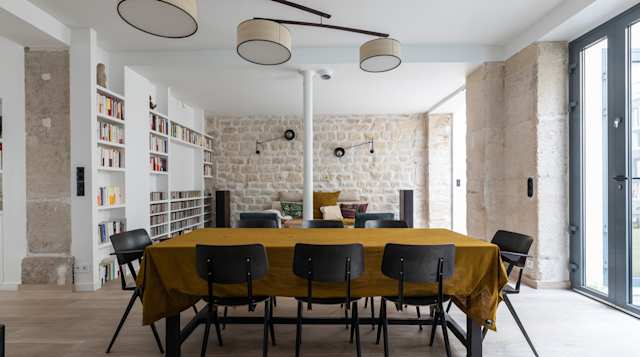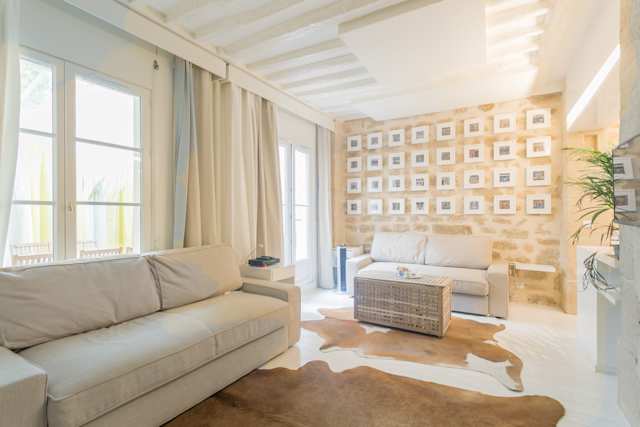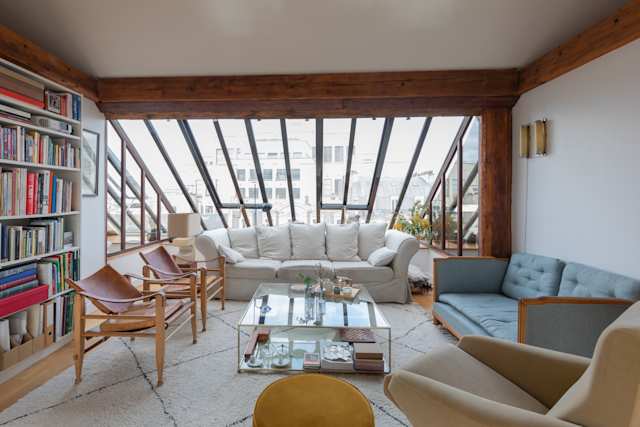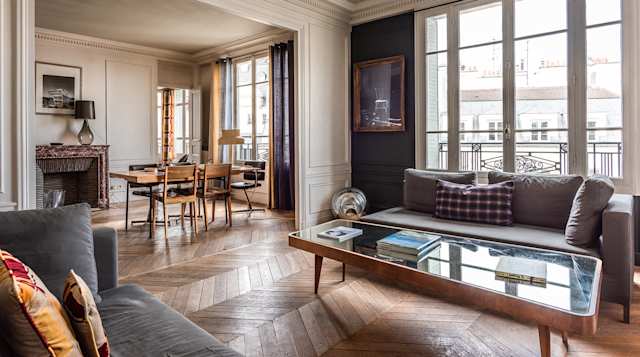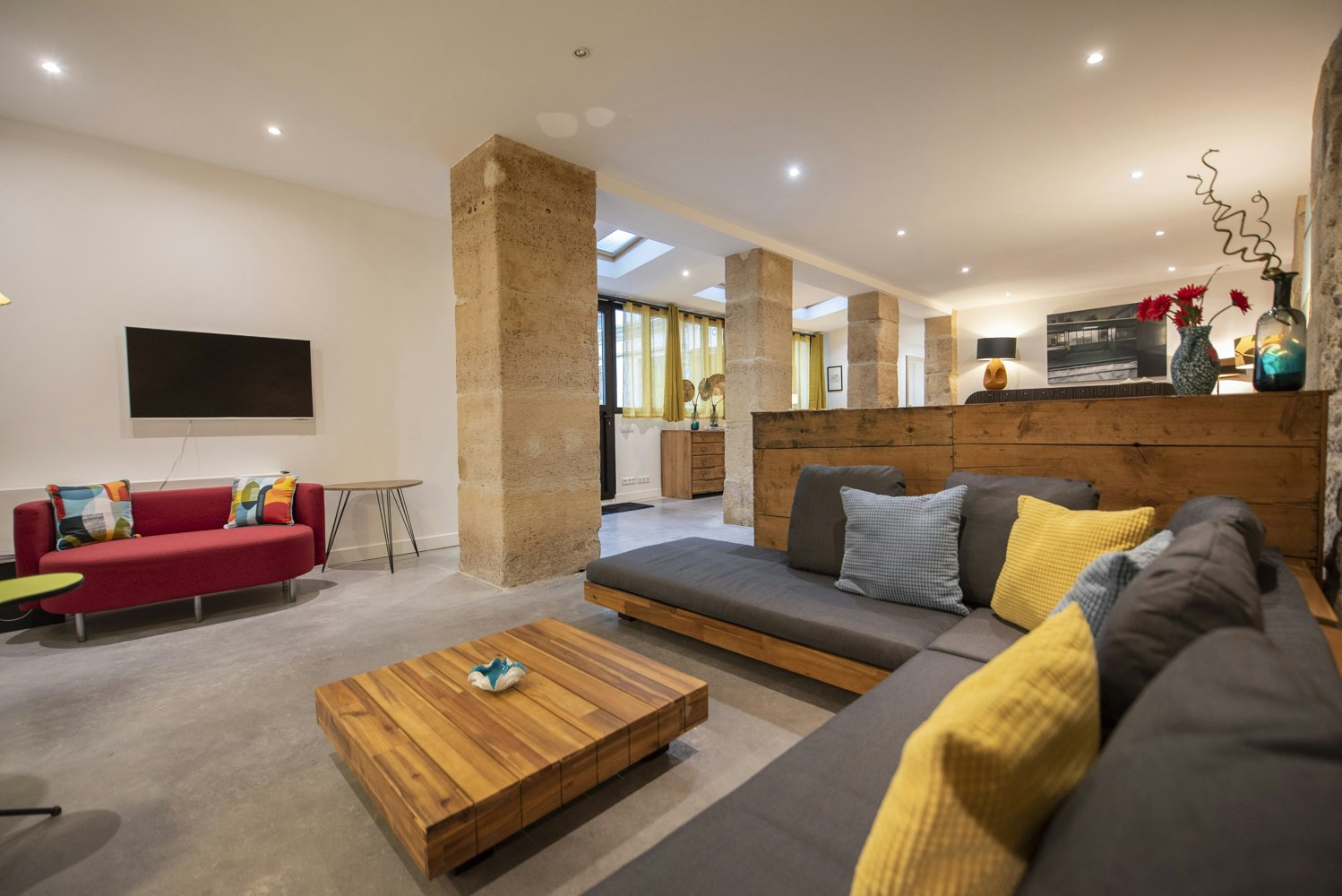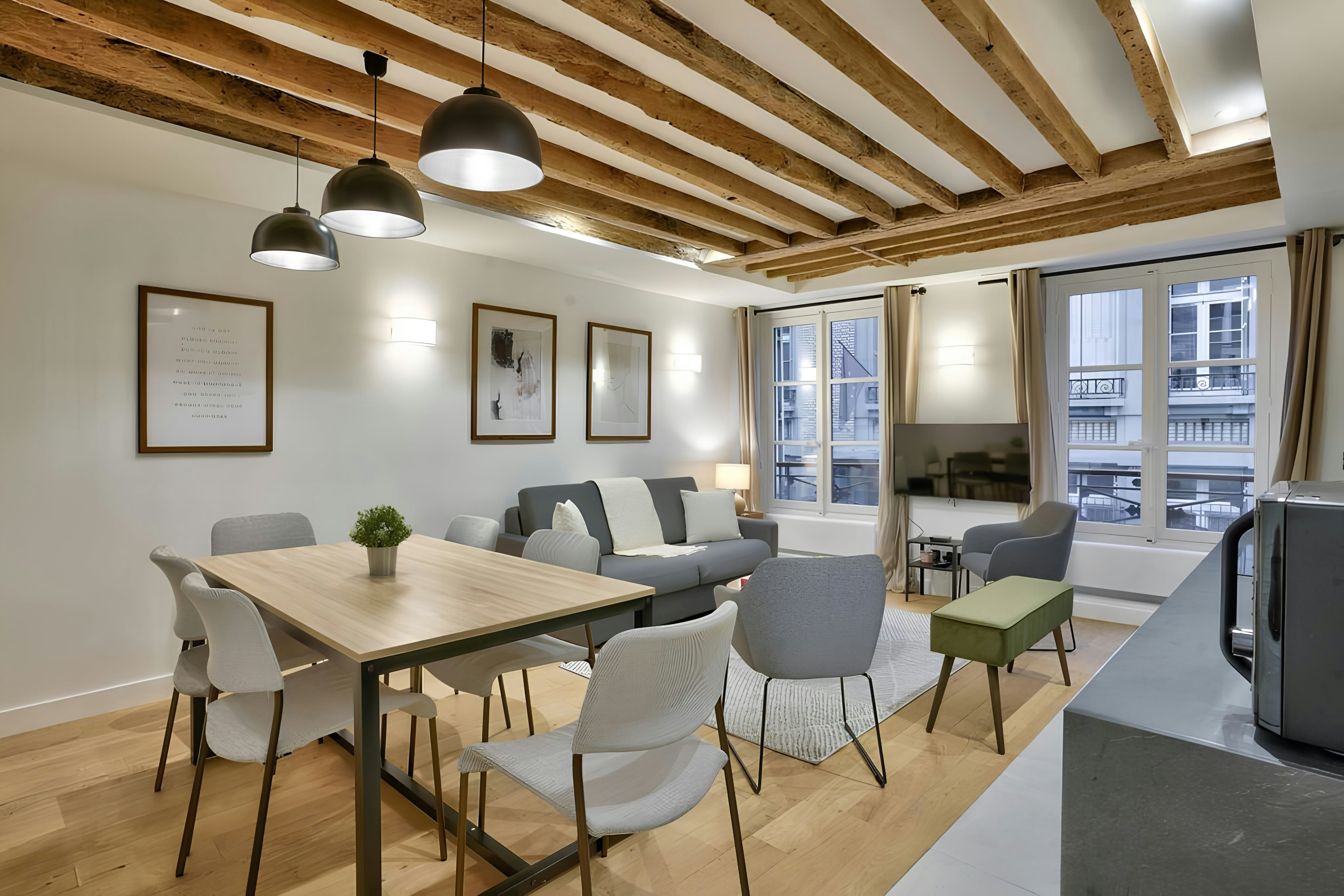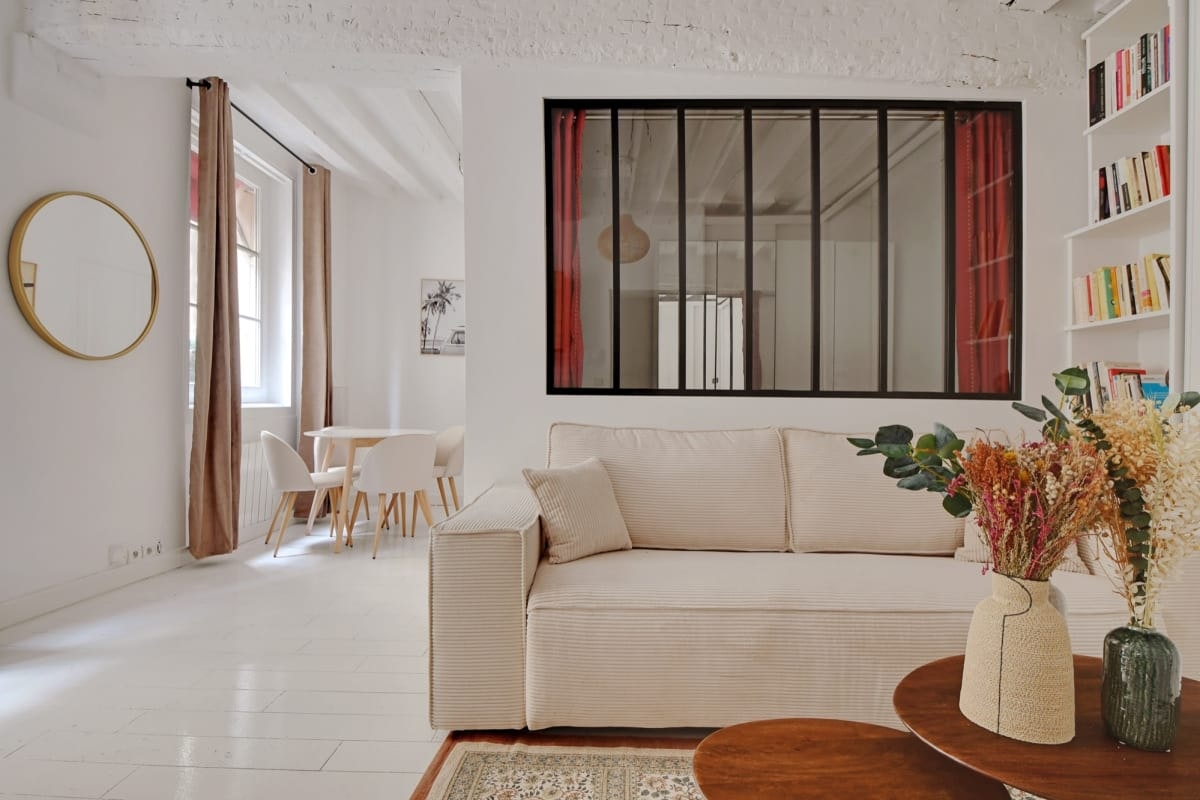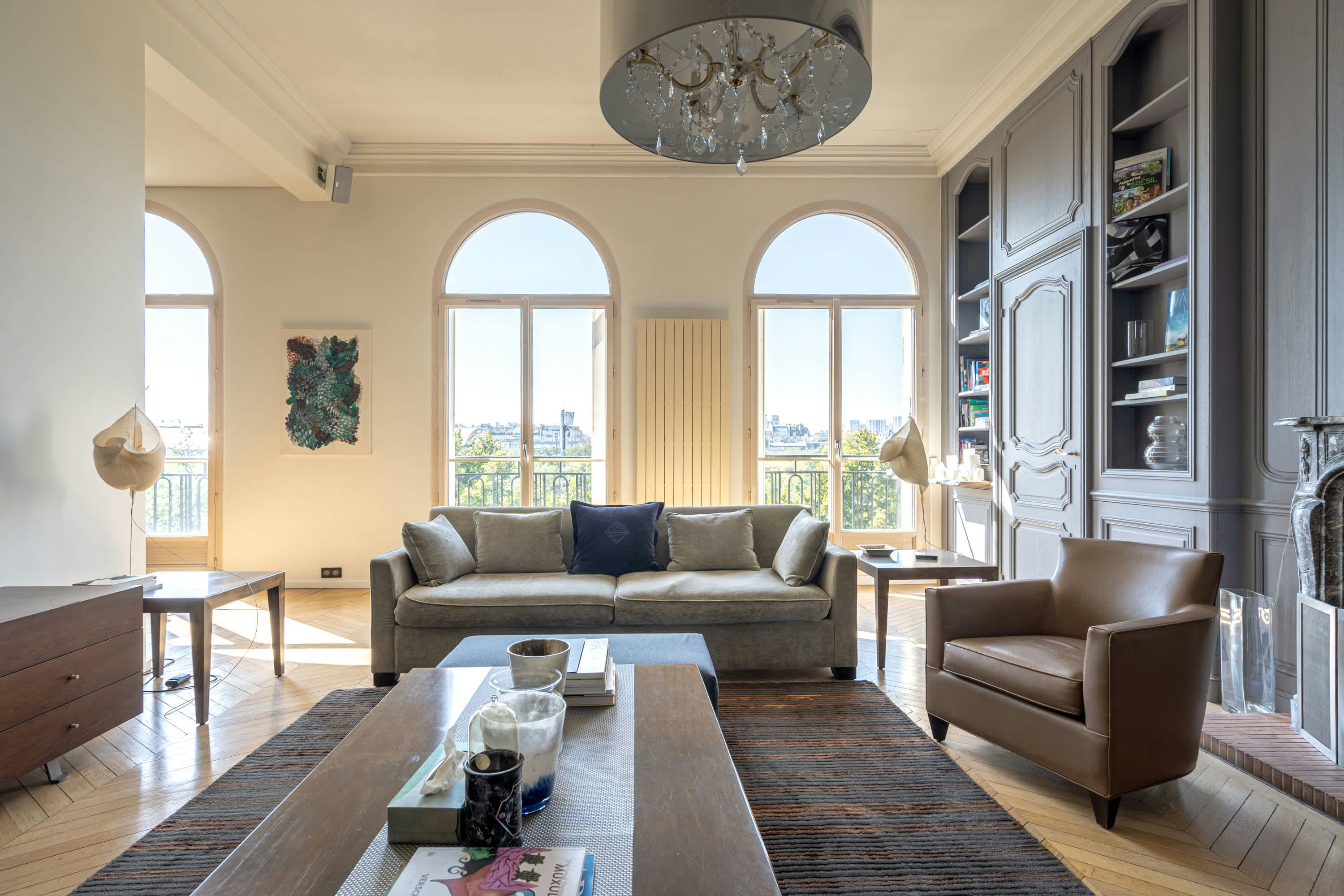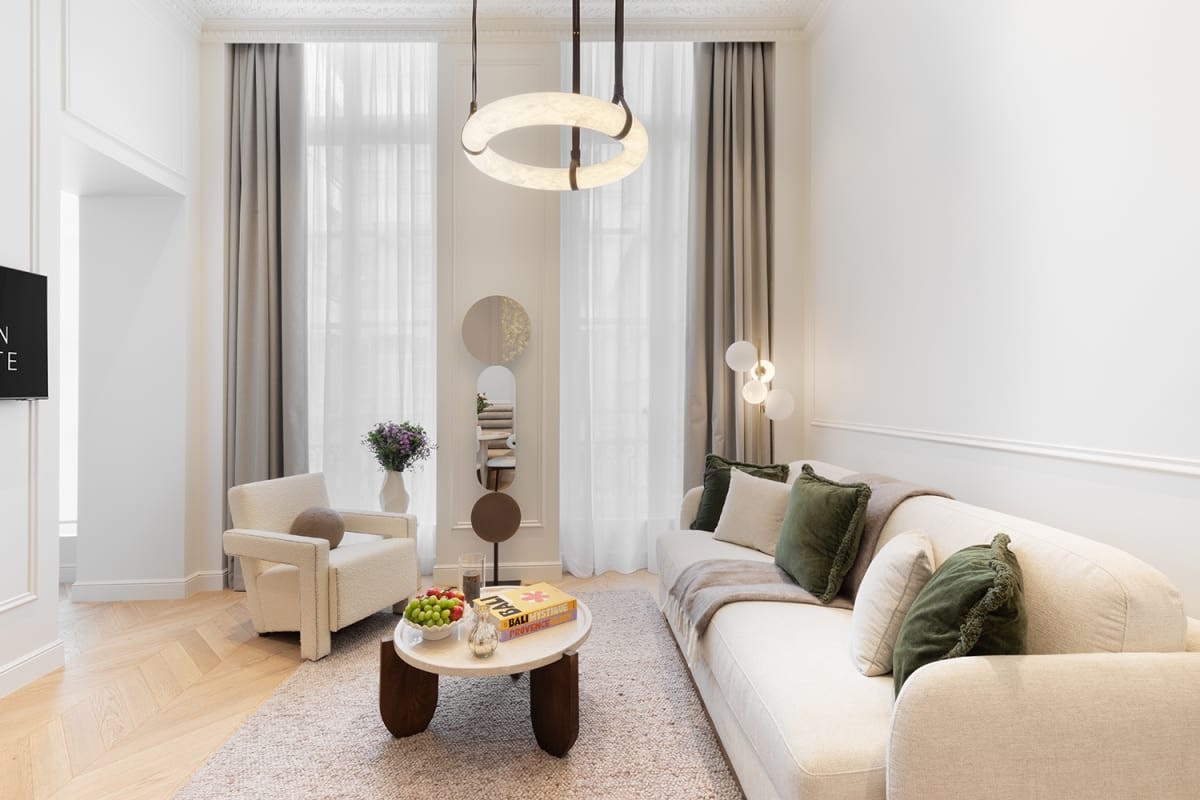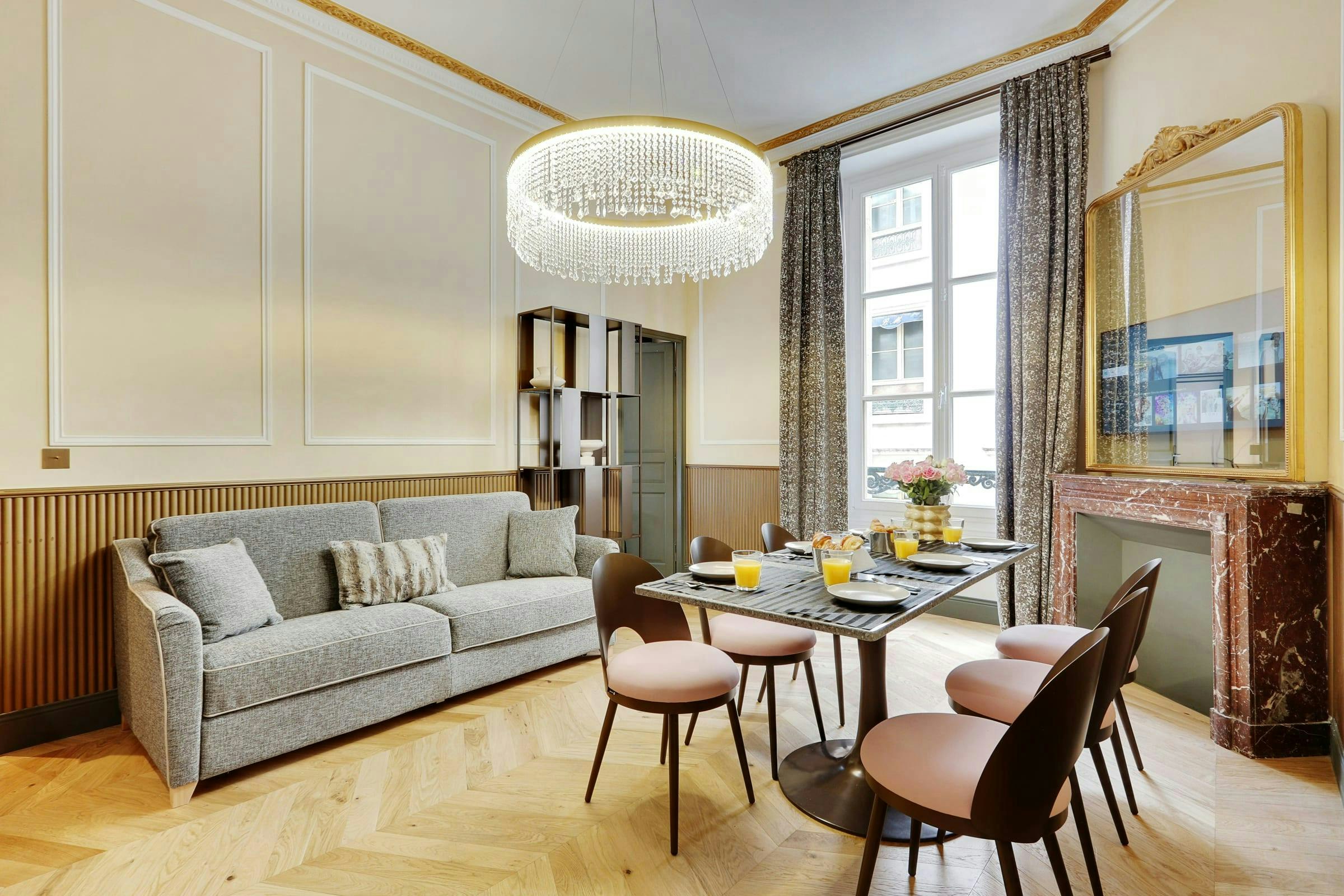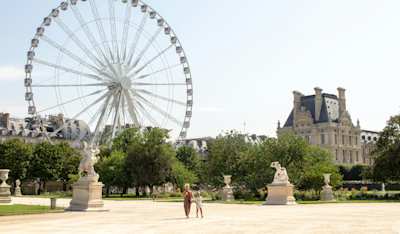Moving to Paris? Here's All You Need to Know for Work Relocation
Relocating to the city of lights and love for work? Prepare yourself for the best working lunches in the world, combined with a healthy portion of bureaucracy in the historic French capital.
~

Make no mistake, Paris is beautiful. Beautiful food, beautiful people, beautiful art, streets and history. You may think that moving to Paris for work will be all croissants, vin rouge and baguettes, but beware that living la vie en rose is somewhat less romantic than you may think. Parisians are not renowned for their ability to quickly process bureaucratic logistics – qualities that we here at Plum Guide would say are crucial when it comes to relocating. You’d have to speak to our friends over in Berlin for that. That said, Parisians do get stuck with quite the unfair stereotype as being rather snooty and rude, but once you’re in the City of Light for yourself, you’ll see that ‘a bonjour’ here and ‘la Bise’ there can take you a long way. Prepare for a great work-life balance, a plethora of cultural activities and an abundance of rustic charm in one of the most well-loved, historic cities on the planet.
Working culture
It may be a cosmopolitan capital city, but upon moving to Paris, you’ll quickly realise that the French are dedicated to their 35 hour working week. Especially if you’re relocating from the likes of London, expect none of the 24/7 bustle. Parisians are far too glamorous for that. So now for la vie Parisienne, expect most shops to be closed on a Sunday, with some even closing in the middle of the day during the week. This may require you to adjust your expectations and do more planning in advance. If you’re meeting a colleague or a friend for un apéritif at 7pm, expect them to arrive up to 15 minutes late - but remember that drinking culture does not extend to business culture. In Paris, business meetings run on time, as planned.
Accommodation – areas
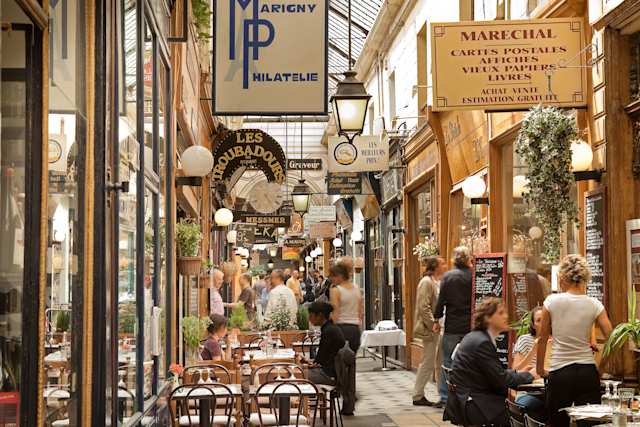
Passage De Panoramas in 02 arrondissement, Paris
When moving to Paris, make sure you do your research regarding exactly where you want to live. The city is divided up into separate arrondissements - or neighbourhoods - organised by number, with the lowest numbers closest to the city centre. For example, the 1st or 2nd arrondissements are the buzzing financial districts and tourist areas, complete with beautiful buildings. The 3rd arrondissement offers more cultural options, and is traditionally viewed as upmarket, stylish and full with boutique shops, museums, theatres and galleries. Très chic.
Accommodation – need-to-know
Bear in mind that the closer to you the centre you get, the higher the prices will rise, but the further out arrondissements offer greener spaces, better value properties for your Euros (and houses, as opposed to flats) and are well-connected by the Metro and other public transport options. Relocating to Paris means that, most likely, you’ll be living in a beautiful building - typically French in style - but with minimal space. Traditional buildings are not likely to offer lifts or escalators, and can have multiple flights of stairs. Paris consistently features in the top 10 most expensive European cities for rental accommodation, so if you’re transferring with a company, make sure you negotiate a relocation package. Take a look at Plum Guide's best serviced apartments in Paris. If you’re looking to buy, remember that property in the French capital is priced per square metre, and a typical Parisian apartment can set you back around €400,000. What a bargain.
Travel

The Metro Stop beside Jardin des Tuileries, Paris, France
Travel in Paris is well-organised and offers a variety of options, with the main ones being: Metro, RER trains, buses and trams. The Metro is often busy, but it does cover the entire city and is easy to navigate, much in a similar way to the London Tube system. One of the best ways of getting around is with a Navigo card. This will offer you unlimited travel within 5 zones for an entire month, for just €73. These tickets can also be bought weekly and include travel to areas far outside the city centre, such as the airport and Disneyland - not that you’ll be going there.
La bise
More decorative than functional, be prepared to offer more than just a handshake when meeting someone for the first time. La bise - or faire la bise - refers to the customary French greeting of offering a peck or two on one or both cheeks. Always offer a ‘bonjour’ or a ‘merci’ upon entering or leaving a building. To say nothing and avoid eye contact is considered the height of rudeness.
Paperwork
If you’re moving to Paris with a company, hopefully they will help you jump through all the major bureaucratic and logistical hoops which can prove such a nightmare. Your firm should help you out with visas, finding an apartment in Paris and making sure all your paperwork is in order. The good news is that France is lauded for its comprehensive healthcare system, so as long as you’re sorted with health insurance before your arrival, then you’ve got the basics covered. Basic healthcare is more or less compulsory for French residents, and you can get yourself sorted with access a basic plan for €10 a month via the French social security office.
Children
Paris is renowned for its array of prestigious international and bilingual schools. But remember, if you’re looking to live in family friendly house in Paris, bear in mind that the best of these schools are based in the city centre. The majority of these schools the international baccalaureate (IBL) system - however the famous American School Of Paris offers an American syllabus. If you’re looking for childcare, you can get yourself set up with an old fashioned au pair or nanny. There are plenty of nurseries and childcare professionals who are highly-trained and English-speaking you can choose from.
